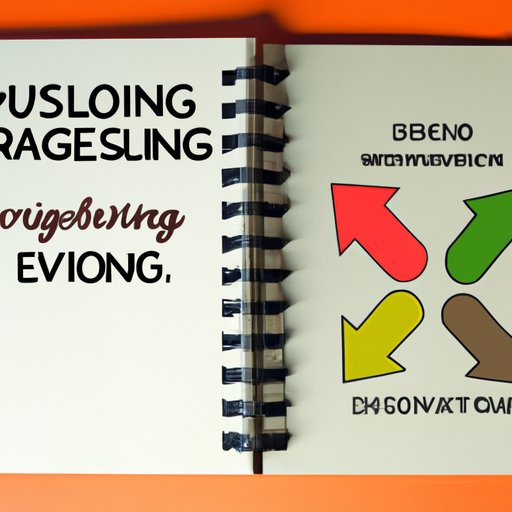
Introduction
Business Development Managers are a vital part of any organization’s success. They are responsible for identifying new business opportunities, developing strategies to increase revenue, and building relationships with key stakeholders. Understanding the roles and responsibilities of a Business Development Manager is crucial for anyone interested in pursuing a career in this field.
In this article, we will explore the various aspects of the role of a Business Development Manager. We will also learn from successful professionals in the field, examine the evolution of the role over time, and identify the key attributes employers look for in candidates. Additionally, we will discuss strategies for building effective partnerships and navigating challenges in the role.
Exploring the Roles and Responsibilities of a Business Development Manager
The daily tasks and responsibilities of a Business Development Manager vary depending on the organization they work for. Generally, they are responsible for identifying, developing, and implementing strategies to expand the organization’s customer base and market share. They also work closely with other departments, such as sales and marketing, to ensure strategies are aligned and goals are met.
Business Development Managers are employed in a wide range of industries, from technology startups to large corporations. They typically work in the field of business-to-business (B2B) sales, although some may work on business-to-consumer (B2C) initiatives as well.
The role of a Business Development Manager is an essential part of any organization’s success. They act as a bridge between the company and its customers and work to foster relationships that are mutually beneficial. This role offers exciting challenges and opportunities to make a significant impact on the success of an organization.
Strategies for Success: Top Business Development Managers Share Their Secrets
To gain insight into what it takes to be a successful Business Development Manager, we spoke with professionals who have excelled in the field. These experts highlighted several key success factors, including:
– Developing a deep understanding of the industry and market trends
– Building strong relationships with key stakeholders
– Staying organized and focused on goals
– Being adaptable and proactive in response to changes in the industry
– Continuously learning and improving skills
Applying these strategies in the workplace can help Business Development Managers achieve success in their roles. It is also important to seek out learning opportunities, such as attending conferences and speaking with colleagues in the field, to stay current with industry trends and best practices.

From Sales to Strategy: The Evolution of the Business Development Manager
The role of a Business Development Manager has evolved over time. Historically, this role was primarily focused on sales and revenue generation. Today, the role has expanded to encompass a broader scope of responsibilities, including market research, strategic planning, and partnership development.
As a result of this evolution, Business Development Managers must possess a more comprehensive skill set, including strategic thinking, data analysis, and creative problem-solving. While this expanded role presents challenges, it also offers exciting opportunities for professionals to make a significant impact on the success of their organizations.
What Employers Look For in Business Development Manager Candidates
Employers seek candidates with a wide range of skills and attributes to fill Business Development Manager roles. Top qualities employers look for in candidates include:
– Strong communication and interpersonal skills
– Proven track record of sales and revenue growth
– Strategic thinking and problem-solving abilities
– Knowledge of the industry and market trends
– Ability to develop and maintain strong relationships with key stakeholders
Job seekers looking to break into the field should focus on developing these key skills and attributes. Networking with professionals in the field, seeking mentorship opportunities, and continuously learning and improving their skills can increase their chances of success in securing a Business Development Manager position.
Building Effective Business Partnerships: Insights from Business Development Managers
Building effective partnerships and networks is crucial in any business. In their role, Business Development Managers focus on building relationships with strategic partners to help drive growth for their organizations.
Successful Business Development Managers recognize that building effective partnerships requires ongoing effort and attention. They suggest investing time in understanding the partner’s business and goals, being transparent and honest in the partnership, and continuously learning and improving the partnership.
Navigating Challenges in Business Development Management
Like any role, Business Development Managers face their unique set of challenges. Common obstacles that Business Development Managers may face include:
– Developing strategies in highly competitive markets
– Building new partnerships and trust with clients
– Dealing with internal politics and resistance to change
– Balancing the short-term objectives with long-term goals
To navigate these challenges successfully, tips and best practices include developing a long-term, strategic approach; investing time in understanding the organization and its objectives; being persistent and patient in building partnerships and business relationships; and being adaptable and responsive to change.
Conclusion
In conclusion, the role of a Business Development Manager is essential to an organization’s success. Their role requires a comprehensive skill set, including sales, strategy, and relationship management. It is a challenging role, but one with exciting opportunities for professionals to make an impact.
There are many strategies for success in this role, including developing a deep understanding of industry and market trends, building strong relationships with key stakeholders, continuously learning and improving skills, and being adaptable and proactive. By focusing on these strategies and attributes, job seekers can increase their chances of success in securing a Business Development Manager position.
Finally, building effective partnerships and navigating challenges are critical components of the role. Successful professionals recognize that these require ongoing effort, transparency, and patience to achieve.




